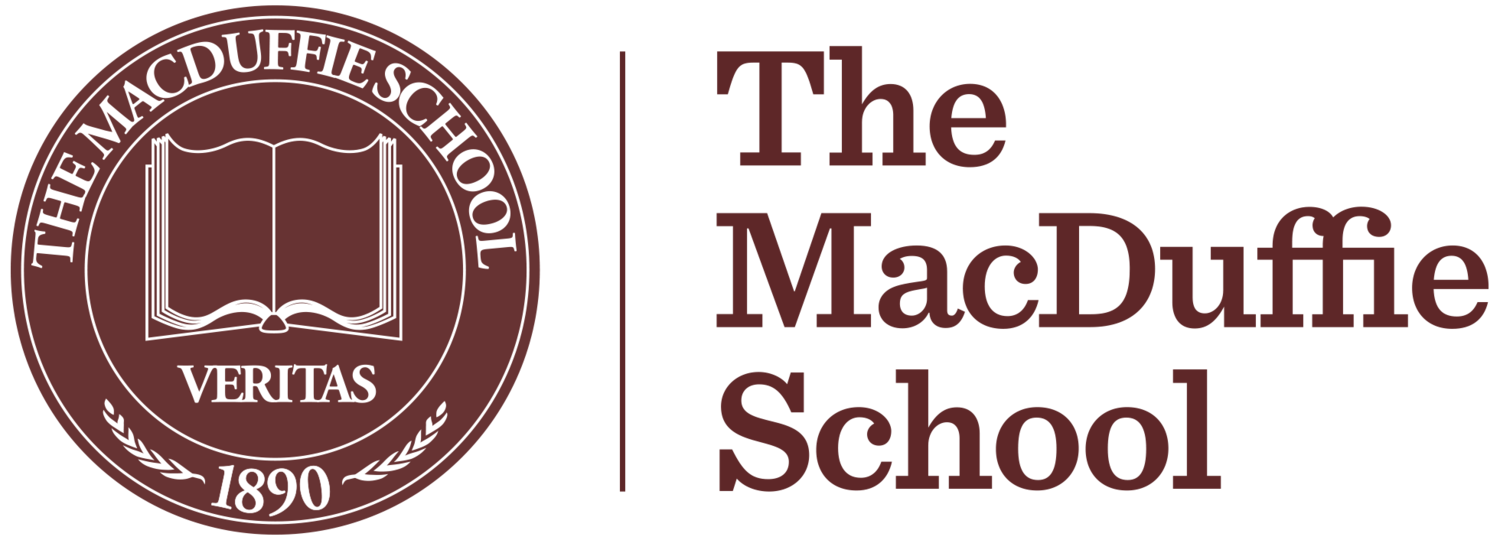ADVISING AND ACADEMIC SUPPORT
The Academic Support Center offers support services to students. Programs provided include Guided Study and Study Skills, as well as assistance coordinating outside tutoring services when needed. The Academic Support Center is available to all students who require additional support to achieve academic success during their time at MacDuffie. The Path to Excellence is the MacDuffie Advisor Program. Advisors assist students in acclimating to the MacDuffie community and learning our values
Path to Excellence Advising Program
The Path to Excellence is the MacDuffie Advisor Program. It is designed to help each student take advantage of all the academic, social, and extracurricular opportunities offered by the school, and thus to receive the full benefit of the MacDuffie experience. The Advisory guides the students in accepting and adopting the core values, expressed in the MacDuffie CIRCLE – Community, Integrity, Respect, Creativity, Leadership, and Excellence – and plays a valuable role in supporting the educational and developmental goals expressed in the MacDuffie Mission. The Path to Excellence Program provides each student the chance to meet individually and in peer groups with a faculty or staff member who serves as a trusted adult for the student. The advisor monitors the student’s academic, social, and emotional growth, and discusses any concerns regarding all aspects of school life, the world at large, and any future plans. The advisor’s role is to help students develop a sense of connection to the MacDuffie community.
Guided Study Program
The Guided Study Program provides one-on-one academic support to capable MacDuffie students who have deficits or gaps in their academic skills. Students in this program may have had psychological-educational evaluations identifying areas of weakness, or may have long-term learning difficulties in specific subject areas.
This program is individualized to meet the student’s needs. Instruction is conducted in a one-on-one setting during the school day. Once enrolled in the program a student-specific educational plan is established. Educational plans are guided by recommendations provided through assessments, as well as input from the student, parents, and teachers. Guided Study targets specific learning strategies and skills and closely monitors student progress.
Support areas may include:
Writing development
Reading comprehension
Critical thinking skills
Organization and time management
Note-taking
Test preparation and study skills
Managing multi-step and long-term projects
Notebook organization
Math skills
This is a fee-based program. Minimum participation is usually one semester.
Study Skills Program
The Study Skills Program provides support to students who may need to further develop their study skills.
Candidates for the Study Skills Program are:
Students who need coaching on organization and time-management
Students who feel overwhelmed by the volume of homework assigned at MacDuffie
Students who need help learning to prepare for tests
Students who have difficulty starting and completing long-term assignments
Students struggling with note-taking or keeping organized notebooks
Students may be referred to this program by a concerned teacher or academic adviser. Instruction is typically provided within small group settings, but may also be administered in a one-on-one setting. Sessions are scheduled during free blocks. While students typically attend two Study Skills sessions per week, frequency and number of sessions are determined by the needs of the student. Sessions can be initiated at any time during the school year.
The Study Skills Program is offered at no additional cost.

